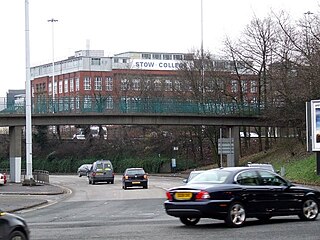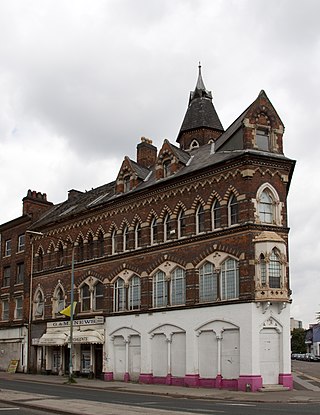Piercing the corporate veil or lifting the corporate veil is a legal decision to treat the rights or duties of a corporation as the rights or liabilities of its shareholders. Usually a corporation is treated as a separate legal person, which is solely responsible for the debts it incurs and the sole beneficiary of the credit it is owed. Common law countries usually uphold this principle of separate personhood, but in exceptional situations may "pierce" or "lift" the corporate veil.

Salomon v A Salomon & Co Ltd[1896] UKHL 1, [1897] AC 22 is a landmark UK company law case. The effect of the House of Lords' unanimous ruling was to uphold firmly the doctrine of corporate personality, as set out in the Companies Act 1862, so that creditors of an insolvent company could not sue the company's shareholders for payment of outstanding debts.

English trust law concerns the protection of assets, usually when they are held by one party for another's benefit. Trusts were a creation of the English law of property and obligations, and share a subsequent history with countries across the Commonwealth and the United States. Trusts developed when claimants in property disputes were dissatisfied with the common law courts and petitioned the King for a just and equitable result. On the King's behalf, the Lord Chancellor developed a parallel justice system in the Court of Chancery, commonly referred as equity. Historically, trusts have mostly been used where people have left money in a will, or created family settlements, charities, or some types of business venture. After the Judicature Act 1873, England's courts of equity and common law were merged, and equitable principles took precedence. Today, trusts play an important role in financial investment, especially in unit trusts and in pension trusts. Although people are generally free to set the terms of trusts in any way they like, there is a growing body of legislation to protect beneficiaries or regulate the trust relationship, including the Trustee Act 1925, Trustee Investments Act 1961, Recognition of Trusts Act 1987, Financial Services and Markets Act 2000, Trustee Act 2000, Pensions Act 1995, Pensions Act 2004 and Charities Act 2011.

The United Kingdom company law regulates corporations formed under the Companies Act 2006. Also governed by the Insolvency Act 1986, the UK Corporate Governance Code, European Union Directives and court cases, the company is the primary legal vehicle to organise and run business. Tracing their modern history to the late Industrial Revolution, public companies now employ more people and generate more of wealth in the United Kingdom economy than any other form of organisation. The United Kingdom was the first country to draft modern corporation statutes, where through a simple registration procedure any investors could incorporate, limit liability to their commercial creditors in the event of business insolvency, and where management was delegated to a centralised board of directors. An influential model within Europe, the Commonwealth and as an international standard setter, UK law has always given people broad freedom to design the internal company rules, so long as the mandatory minimum rights of investors under its legislation are complied with.

Boardman v Phipps [1966] UKHL 2 is a landmark English trusts law case concerning the duty of loyalty and the duty to avoid conflicts of interest.

DHN Food Distributors Ltd v Tower Hamlets London Borough Council [1976] 1 WLR 852 is a UK company law case where, on the basis that a company should be compensated for loss of its business under a compulsory acquisition order, a group was recognised as a single economic entity. It stands as a liberal example of when UK courts may lift the veil of incorporation of a company.

City of London Building Society v Flegg[1987] UKHL 6 is an English land law case decided in the House of Lords on the relationship between potential overriding interests and the concept of overreaching.

Woolfson v Strathclyde Regional Council [1978] UKHL 5 is a UK company law case concerning piercing the corporate veil.

Littlewoods Mail Order Stores v Inland Revenue Commissioners [1969] 1 WLR 1241 is a UK company law case concerning piercing the corporate veil.
Trustor AB v Smallbone [2001] EWHC 703 (Ch) is a UK company law case concerning piercing the corporate veil.
R&B Customs Brokers Co. Ltd. v. United Dominions Trust Ltd. [1987] EWCA Civ 3 is an English contract law case, concerning unfair terms under the Unfair Contract Terms Act 1977.
The corporate veil in the United Kingdom is a metaphorical reference used in UK company law for the concept that the rights and duties of a corporation are, as a general principle, the responsibility of that company alone. Just as a natural person cannot be held legally accountable for the conduct or obligations of another person, unless they have expressly or implicitly assumed responsibility, guaranteed or indemnified the other person, as a general principle shareholders, directors and employees cannot be bound by the rights and duties of a corporation. This concept has traditionally been likened to a "veil" of separation between the legal entity of a corporation and the real people who invest their money and labor into a company's operations.

Chandler v Cape plc [2012] EWCA Civ 525 is a decision of the Court of Appeal which addresses the availability of damages for a tort victim from a parent company, in circumstances where the victim suffered industrial injury during employment by a subsidiary company.

The Attorney General for Hong Kong v Reid (UKPC)[1993] UKPC 2 was a New Zealand-originated trust law case heard and decided by the Judicial Committee of the Privy Council, where it was held that bribe money accepted by a person in a position of trust, can be traced into any property bought and is held on constructive trust for the beneficiary.

Target Holdings Ltd v Redferns[1995] UKHL 10 is an English trusts law case, concerning the test for causation and the extent of compensation for breaches of trust.

Westdeutsche Landesbank Girozentrale v Islington LBC[1996] UKHL 12, [1996] AC 669 is a leading English trusts law case concerning the circumstances under which a resulting trust arises. It held that such a trust must be intended, or must be able to be presumed to have been intended. In the view of the majority of the House of Lords, presumed intention to reflect what is conscionable underlies all resulting and constructive trusts.
Belmont Finance Corp Ltd v Williams Furniture Ltd [1980] 1 All ER 393 is an English trusts law case, concerning breach of trust and dishonest assistance.
Relfo Ltd v Varsani [2014] EWCA Civ 360 is an English unjust enrichment law case, concerning to what extent enrichment of the defendant must be at the expense of the claimant.

Prest v Petrodel Resources Ltd[2013] UKSC 34, [2013] 2 AC 415 is a leading UK company law decision of the UK Supreme Court concerning the nature of the doctrine of piercing the corporate veil, resulting trusts and equitable proprietary remedies in the context of English family law.

VTB Capital plc v Nutritek International Corp[2013] UKSC 5, [2013] 2 AC 337 is an English company law case, concerning piercing the corporate veil for fraud.














